Research Papers
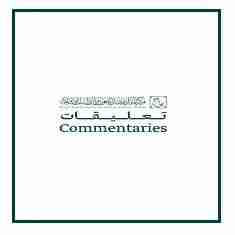
Number:
Author:
“A New Price Era in a Time of Climate Action: Towards a Resilient and Responsive Saudi Economy”
By Noura T Al Saud & Mashael AL-Shalan
January 24th, 2016
The relentless pace of major consequential world events in recent years molded some of us into ardent pessimists. The world seemingly feels more vulnerable today than it has ever been; as we struggle to sustain a delicate balance between maintaining security and fostering economic growth. Less imminent and tangible of a threat
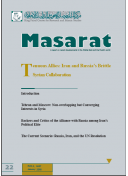
Number:
Author:
Masarat 22nd Issue, Published January, 2016/Rabi Al-Thani, 1437 Hijri.
This paper aims to discuss the asymmetric, interdependent nature of the relationship between Russia and Iran. The two countries have found themselves on the same side in a variety of conflicts in which their national interests have coincided, and among these conflicts is the current Syrian civil war. The paper discusses the aspects that the alliance on the Syrian issue is based on, the consolidation of this alliance through military synergies between the two countries, and the criticism received by Iran&r
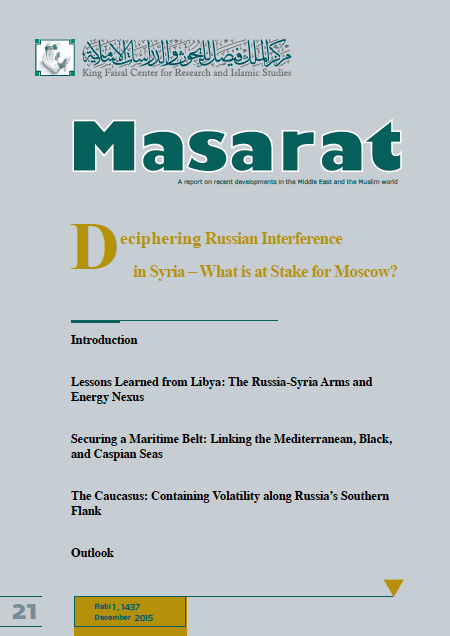
Number:
Author:
Masarat 21st issue, published December 2015/Rabi Al-Awwal 1437 Hijri.
‘Deciphering Russian Interference in Syria: What is at Stake for Moscow?’
Amid the turmoil in the Levant, a region entangled in the Syrian civil war for over four years, a significant change in trajectory has recently taken place. In mid September 2015, Russian armed forces deployed along the Syrian Mediterranean coast in the La
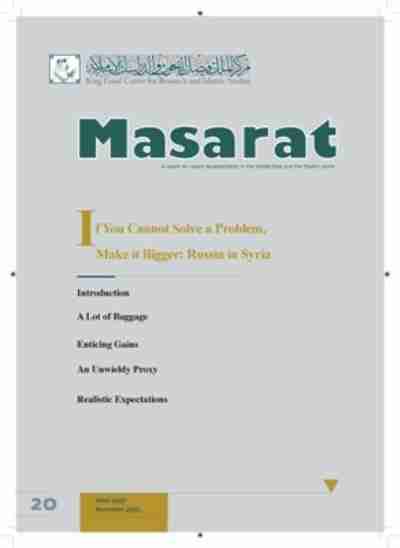
Number:
Author:
The 20th Masarat issue, published November 2015/Safar 1437.
When Russia jumped into the fray, adding yet another layer of complexity to the already intractable Syrian conflict, commentators and politicians responded predominantly by projecting their hopes unto a game-changer seen as shifting a hurting stalemate toward its denouement. The prospect of a dangerous escalation making the crisis even more difficult to solve was largely dismissed, based on a rather speculative and wishful understanding of Russia’s intentions or capacities.
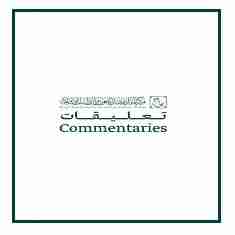
Number:
Author:
By Noura Turki Al Saud
Oct 21, 2015
Since the oil price decline in the Fall of 2014, speculations concerning Saudi Arabia’s behavior in the oil market have been mounting. Traditionally viewed as the oil market’s savior, the Kingdom has borne the burden of oil market disruptions and price volatility since the boom of its oil industry, heightened in the years after the Arab oil embargo in the 1970’s. Today, this trend is being disrupted as Saudi Arabia relinquishes its customary role in stabilizing the market, refusing to bear the sole burden of defending prices. This step has unjustifiably generated noise about a globa
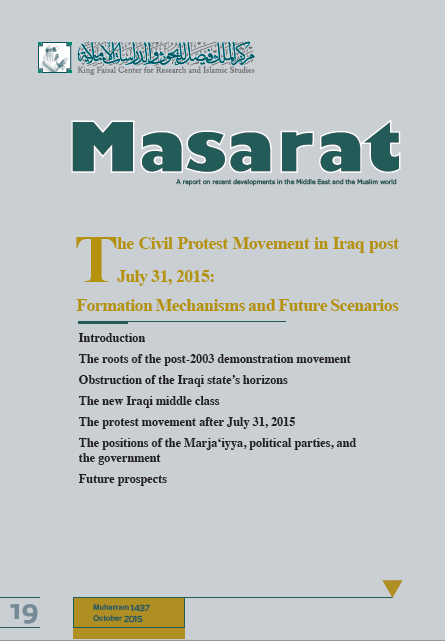
Number:
Author:
The 19th Masarat issue, published October 2015/Muharram 1437.
This study, looks at the civil protest movement in Iraq post July 31, 2015 from two angles: first, by analyzing the alliance of the three influential forces of the reform movement (the protesting masses, the religious authority of the Marja‘iyya led by Sistani, and Prime Minister Haider Al-Abadi) and second, by examining the convergence of grassroots demands for actual change from policymakers.
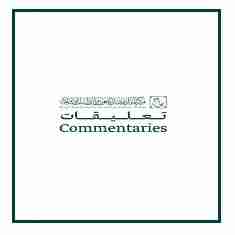
Number:
Author:
By Dr. Saud Al-Sarhan
Abstract:
In recent months, as Abu Bakr al-Baghdadi’s organization, known as the Islamic State (IS), has grown in influence and renown, tensions between it and other ِAl-Qaeda affiliates in the Middle East have increased. For the time being, al-Qaeda in Arabian Peninsula (AQAP), led by Abu Basir al-Wuhayshi, is trying to put off a confrontation with IS in order to avoid internecine conflict and divided loyalties within its membership. As al-Qaeda’s major personalities clash over differences in strategy and ambition, the question remains: Is AQAP headed for a bloody civil conflict?
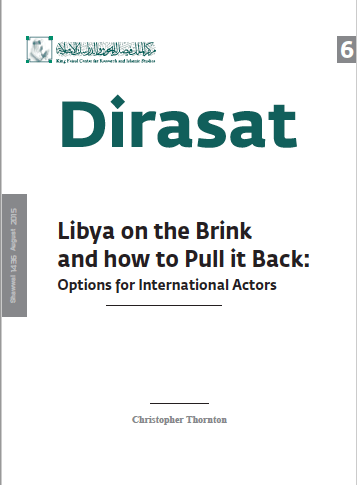
Number:
Author:
Libya on the Brink and How to Pull it Back: Options for International Actors
Christopher Thornton
Shawwal 1436 August 2015
Abstract:
The launch of Operation Dignity in May 2014 transformed Libya’s low-level military and political conflict into a full-blown war. The seizure of Tripoli and much of western Libya by the opposing Libya Dawn movement left the country divided in two with two parliaments, two governments, and two putative armies
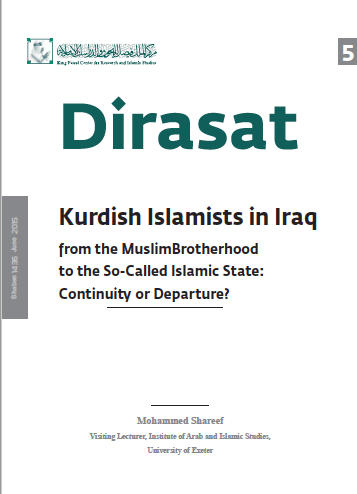
Number:
Author:
?Kurdish Islamists in Iraq, from the Muslim Brotherhood to the so-called “Islamic State:” Continuity or Departure
Mohammed Shareef
Issue 5 – Shaban 1436 June 2015
Abstract:
The major Islamist groups in the Kurdistan region of Iraq have long been part of the political landscape both at the subnational Kurdistan level and at the Iraqi national level. They gradually emerged in the late 1980s and became mo
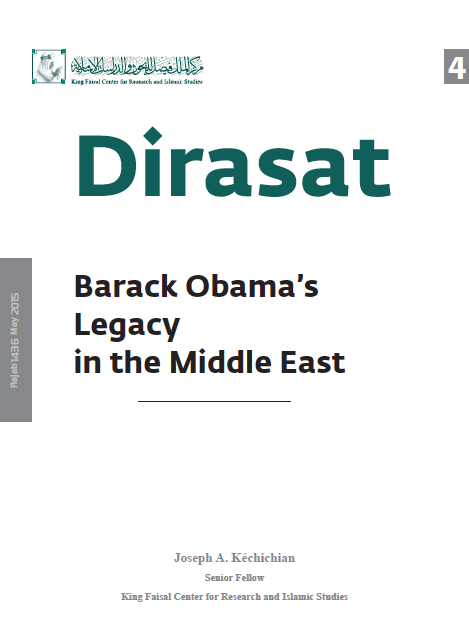
Number:
Author: Joseph A. Kéchichian
The Obama administration’s record in the Middle East from 2008 to the present included several failed opportunities, although what stood above all else was the lack of urgency to tackle the Arab-Israeli peace process, still the enduring concern that galvanizes Arab opinion. With little hope for any prospects for a revival in the aftermath of a public row between Mr. Obama and Israeli Prime Minister Benjamin Netanyahu, it seems that Obama opted to maintain a critical distance between his administration and perennial Middle Eastern concerns. Still, three specific issues are identified in this paper that, inter alia, highlight both existing challenges and fresh ones tha
